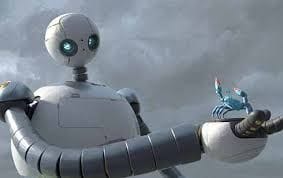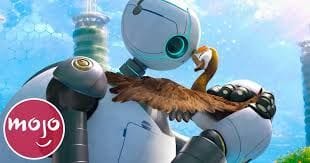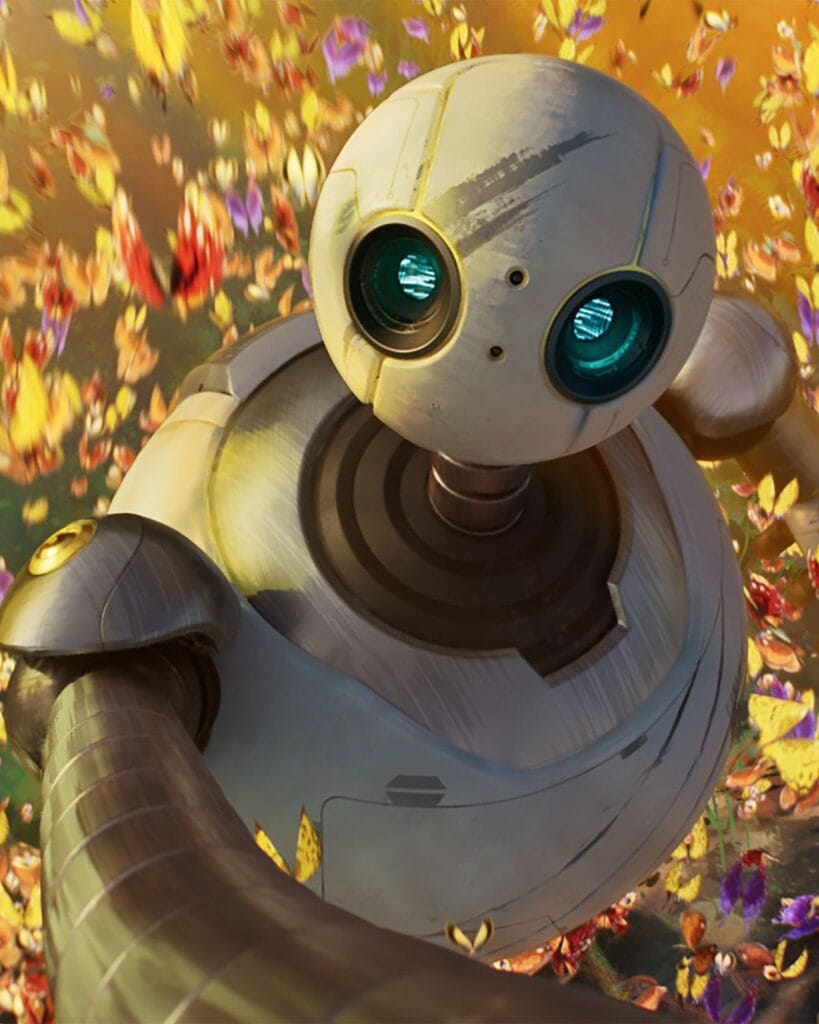Control and Power in The Wild Robot: Breaking down Topics of Mastery and Opportunity
Peter Earthy colored’s original The Wild Robot offers a one of a kind investigation of control, power, and independence

through the excursion of Roz, a robot who suddenly turns out to be important for the normal world. While the novel seems, by all accounts, to be a youngsters’ tale about endurance and variation, it digs into more profound philosophical inquiries concerning the connection among innovation and nature, as well as the more extensive elements of control — whether it comes from society, programming, or self-acknowledgment. The story questions who or what holds power, the way things are used, and whether genuine opportunity is conceivable in a world represented by frameworks of control.
Control Through Programming and Design
At the core of The Wild Robot is Roz’s starting point as a machine worked for explicit purposes. Her underlying programming characterizes her reality as an instrument intended to serve people. This mechanical control reflects the manners by which present day culture forces predefined jobs and assumptions, both on people and on innovation. Roz starts as an object of utility, intended to submit to orders truly — an illustration for cultural congruity and the absence of independence frequently forced by foundations.
In any case, Roz’s accident arrival on a far off island eliminates her from this arrangement of control. Abandoned in a new climate, she should stand up to her programming and adjust to make due. This detachment from her makers features a focal subject: the pressure between outer control and inside development. Roz’s steady development from a modified machine into an independent being brings up issues about choice. Is her change the consequence of programming adjusting to new sources of info, or does it reflect authentic mindfulness?

This duality reflects more extensive cultural discussions about computerized reasoning, human office, and the degree to which people are molded by outer impacts versus natural longings. Roz’s process proposes that breaking liberated from forced control requires flexibility and self-revelation.
Power Dynamics Between Nature and Technology
One more layer of control investigated in The Wild Robot is the epic showdown among nature and innovation. Roz’s appearance on the island represents the interruption of innovation into an immaculate, normal space. At first, the creatures view her as an outsider power — cool, mechanical, and awkward. Her presence disturbs the laid out balance, mirroring this present reality conflict between innovative progression and natural safeguarding.
However, Roz’s continuous mix into the environment uncovers the chance of amicability between these restricting powers. She figures out how to speak with creatures, safeguards weak animals, and even embraces a gosling, Brightbill, as her kid. Through these activities, Roz rethinks her motivation, progressing from a device of control to a defender and nurturer.
This shift shows that power doesn’t need to be employed through predominance or abuse. All things being equal, Roz exemplifies a more helpful and compassionate methodology, recommending that genuine initiative rises up out of shared regard and seeing instead of power. Her change difficulties the story of innovation as innately horrendous, offering a dream of conjunction all things being equal.
External Control: The Threat of Human Intervention
While Roz tracks down opportunity and acknowledgment on the island, the appearance of “Recons” — different robots shipped off recover her — fills in as an obvious sign of the outside powers looking to recover control. These robots address the mechanical frameworks that focus on proficiency, request, and compliance over uniqueness and feeling. Their presence builds up the strain among independence and enslavement, as Roz should oppose being effectively gotten back to her unique job as a customized machine.

The Recons feature the risks of unified control, depicting a reality where innovation is utilized to implement consistence instead of empower development. Roz’s refusal to give up highlights her development into a figure of obstruction, ready to safeguard her newly discovered local area even at extraordinary individual gamble. This contention mirrors more extensive cultural feelings of trepidation about observation, corporate strength, and the disintegration of individual opportunities even with mechanical control.
Power Through Relationships and Empathy
One of the most striking parts of The Wild Robot is its depiction of force through connections instead of strength. Roz’s bond with Brightbill, the gosling she raises, represents how supporting and compassion can rethink customary thoughts of power. As opposed to applying command over Brightbill, Roz guides and supports him, encouraging his freedom while keeping serious areas of strength for an association.
This social model of force remains as a conspicuous difference to the progressive frameworks addressed by the Recons and Roz’s underlying programming. It recommends that authority established in care and cooperation is more maintainable than one in light of pressure and dread. Roz’s capacity to motivate trust and unwavering among the creatures shows the potential for shared power, testing conventional models of control.
Freedom and Self-Determination
Roz’s definitive choice to face the Recons and safeguard her island features the subject of self-assurance. Her eagerness to confront obliteration instead of return to an existence of bondage represents the victory of independence over forced control. However, her battle likewise brings up issues about the restrictions of opportunity. Indeed, even as Roz opposes outer powers, she stays limited by specific limitations — her mechanical body, her programming, and the assumptions set upon her by others.

This uncertainty reflects the human experience of making progress toward freedom while exploring cultural standards and obligations. Roz’s process recommends that opportunity isn’t the shortfall of control however the capacity to characterize one’s motivation inside existing limits.
Philosophical Reflections on Technology and Humanity
The story of The Wild Robot eventually welcomes perusers to consider the crossing point of innovation and humankind. Roz’s development challenges the suspicion that machines are innately without any trace of feeling or moral thinking. All things considered, she exhibits characteristics frequently connected with people — interest, sympathy, and versatility — bringing up issues about being alive.
Through Roz, the original studies the manners by which society tries to control both innovation and people, encouraging perusers to rethink their relationship with power. It advocates for balance instead of control, participation as opposed to double-dealing, and development instead of stagnation.
Conclusion
In The Wild Robot, control and power are investigated from the perspective of innovation, nature, and self-awareness. Roz’s change from a customized machine to a defender and pioneer features the potential for independence and personal growth, even despite outer requirements. Her process difficulties customary thoughts of power, underlining sympathy, flexibility, and shared liability as options in contrast to predominance.
At last, the original fills in as both a useful example and a confident vision, encouraging perusers to consider how they employ power — over themselves, others, and their general surroundings. By introducing an account of congruity among innovation and nature, The Wild Robot urges us to embrace a future where control is offset with opportunity, and power is directed by sympathy.